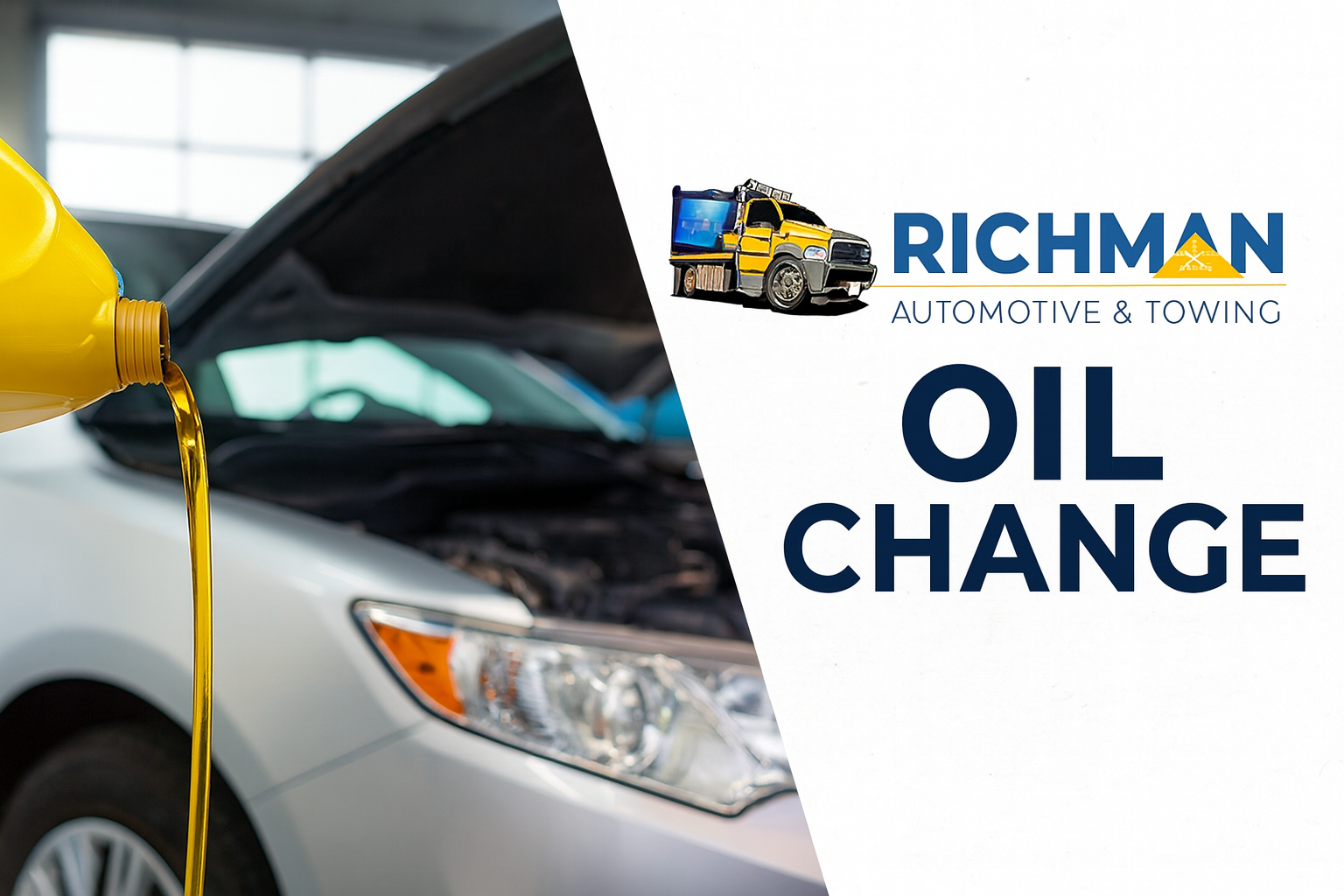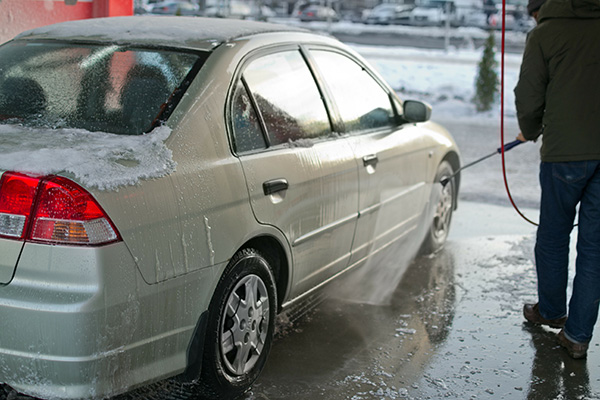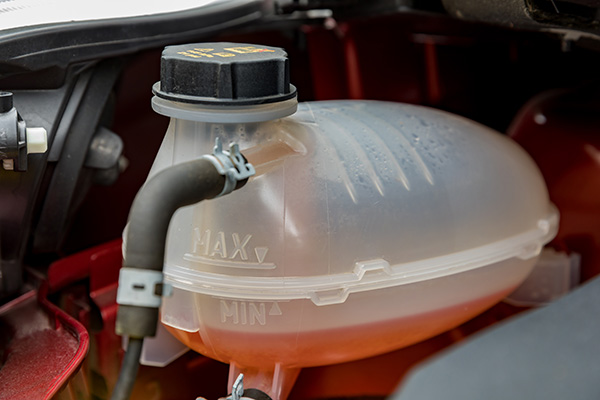Posted on 12/20/2025

Get Your Vehicle Serviced Before the Holidays at Richman's Automotive & Towing The holiday season is one of the busiest times of the year—and the last thing you want is car trouble slowing you down. Whether you’re traveling out of town, visiting family across the metro, or simply running errands around West Des Moines, making sure your vehicle is properly serviced before the holidays can save you time, money, and stress. At Richman Automotive & Towing, we help drivers stay safe and reliable on the road with professional automotive service and 24-hour towing support—all in one convenient location. Why Pre-Holiday Vehicle Service Matters Cold weather, increased driving, and tight schedules can expose small vehicle issues before you expect them. Preventive maintenance before the holidays helps you avoid breakdowns, delays, and costly repairs during one of the most inconvenient times of the year. Scheduling ... read more
Posted on 12/4/2025

A regular oil change is one of the most important — and affordable — maintenance services you can give your vehicle. At Richman Automotive & Towing in West Des Moines, we provide fast, reliable, and professional oil change services designed to keep your engine healthy, extend the life of your vehicle, and improve performance on the road. Why Oil Changes Are Essential Your engine relies on clean oil to reduce friction, regulate temperature, and protect vital components. Over time, oil breaks down and becomes contaminated with dirt, debris, and metal particles. When this happens, your engine has to work harder, which can lead to expensive repairs down the road. Key Benefits of Routine Oil ChangesBetter engine performanceImproved fuel ... read more
Posted on 12/2/2025

When temperatures drop, your vehicle faces harsher conditions that can impact performance, safety, and reliability. At Richman Automotive & Towing, we see firsthand how cold-weather issues can leave drivers stranded—which is why a little preventative maintenance goes a long way. Here are the top winter car care steps every driver should take to stay safe and avoid unexpected breakdowns. 1. Check Your Battery Health Cold weather reduces battery capacity, making it harder for your engine to start. Before winter hits: Have your battery tested for strength and charge. Clean any corrosion from the terminals. Replace batteries that are more than 3–5 years old or show signs of weakness. A strong battery is one of the best defenses against winter breakdowns. 2. Inspect Tires and T ... read more
Posted on 12/20/2024

Winter roads may look scenic, but they hide an enemy—road salt. While it’s necessary for melting ice and keeping roads safe, road salt can wreak havoc on your vehicle. Left unchecked, it can lead to rust, corrosion, and long-term damage to your car’s undercarriage and bodywork. The good news? A few proactive steps can keep your vehicle safe from the harsh effects of road salt all winter long. Why Road Salt is Harmful to Your Car Road salt isn’t just table salt tossed onto icy streets. It’s a mix of sodium chloride or magnesium chloride designed to lower the freezing point of water. While it’s great for preventing icy roads, its chemical properties are highly corrosive to metal surfaces. When road salt sticks to your car, especially in hidden areas like wheel wells and undercarriages, it mixes with moisture and accelerates rust formation. Over time, this can eat away at your car’s metal components, including brakes, suspensio ... read more
Posted on 11/29/2024

Have you noticed the temperature gauge creeping up or a warning light blinking on your car's dashboard? You pop the hood, and, sure enough, your coolant level is low. But what if you’re in a pinch and don’t have any coolant on hand? Is it okay to add water to your car's radiator instead? We'll explain why coolant is essential, what role water plays, and when—if ever—it’s safe to substitute water for coolant in your radiator. Why Coolant Matters in Your Car’s Radiator Coolant, also known as antifreeze, isn’t just a liquid to keep your car from overheating. It’s a specially formulated mixture, typically of water and ethylene glycol or propylene glycol, designed to regulate your engine’s temperature in a range of conditions. Coolant prevents your engine from overheating on hot days and keeps it from freezing in cold weather. This blend also includes additives to prevent corrosion, lubricate the water pump ... read more